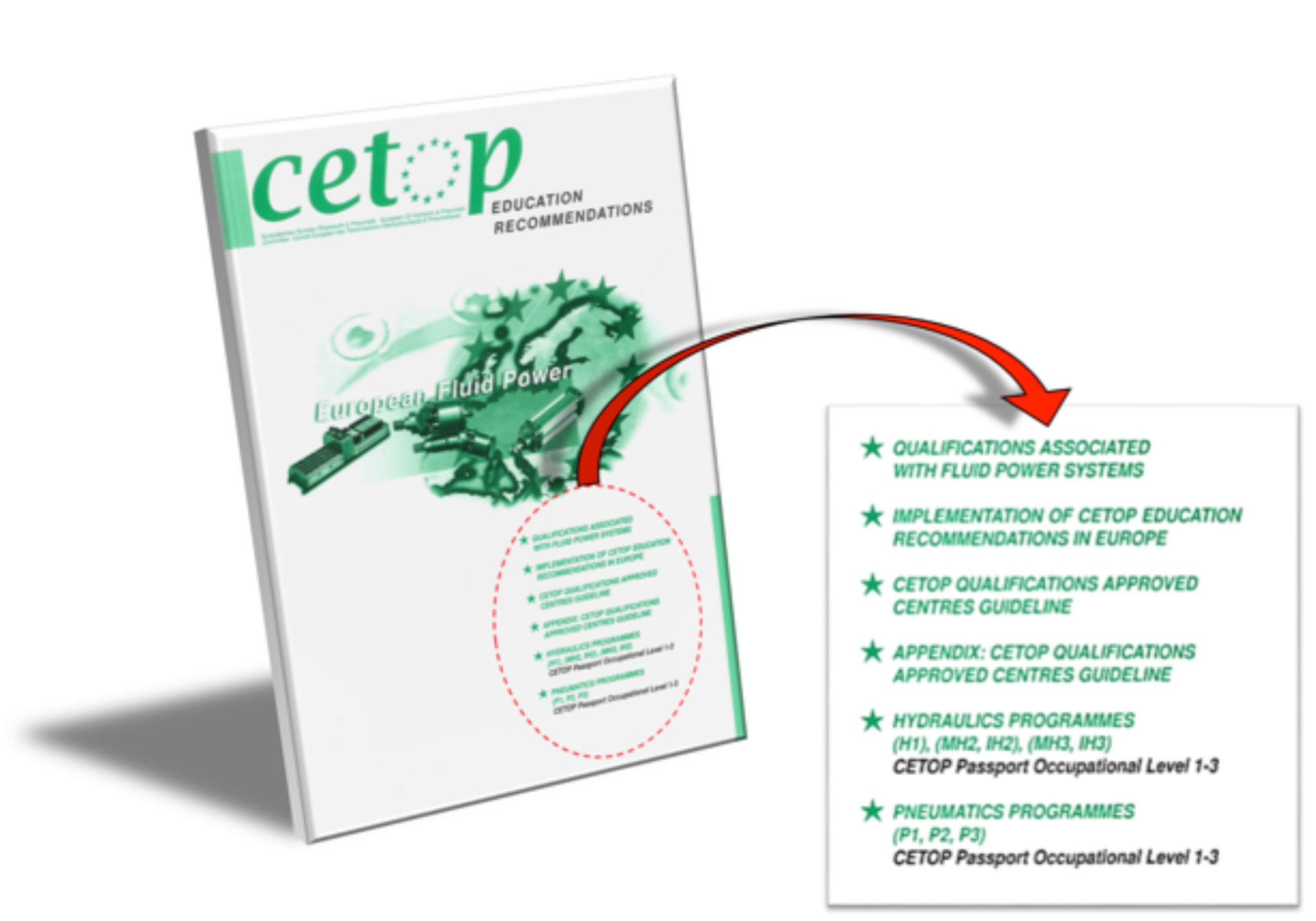BFPA leads the way on reviewing the CETOP Recommended Educational Standards
31 May 2018
BFPA CEO, Chris Buxton reports on a recent CETOP initiative to revisit and revise the content of the existing CETOP Educational recommendations to better reflect current Industry Trends.
Those members with an interest in Fluid Power Training will be aware that along with the various in-house training courses that the BFPA run, the European educational standards are articulated and published through and by CETOP. As most members know, CETOP is the abbreviation of Comité Européen des Transmissions Oléohydrauliques et Pneumatiques; or more simply, the European Fluid Power Committee of all European Fluid Power Trade Associations. In practice many members will appreciate that it is an international umbrella organisation and communication platform for the fluid power associations in Europe.
Through the 18 national associations which are members of CETOP, (including BFPA), all well-known companies in Europe belong to the European Committee. Like our own BFPA members, most of these companies are leading fluid power manufacturers and major players in the international markets.
Amongst the many topics that CETOP addresses, Education & Training is high on the agenda. Our European colleagues have the same challenges as the UK when it comes to skills shortages and the need to establish high educational standards for our sector is just as great on the other side of the channel as it is here. A dedicated CETOP ‘commission’ (for ‘Commission’ read ‘Committee’), provides the vehicle for this work. As key CETOP members, BFPA sits on this committee / commission.
At present the current standards are captured in a document entitled ‘CETOP Education Recommendations.’ This document, shown below, should not be confused with the BFPA Minimum Educational Recommendations, although the basic level content is very similar.

The BFPA recommendations are designed to ensure a minimum level of understanding amongst anyone seeking to undertake any work at all on a fluid power system whilst the CETOP document seeks to promote a three stage educational process which begins at the basic level (H1 for Hydraulics and P1 for Pneumatics), and then takes candidates through to higher levels via CETOP H2, P2 and ultimately H3 and P3.
The BFPA Education & Training Committee were heavily involved in the original development of this document and it is fair to say that it would not have been completed without our major contribution.
However, it is now widely recognised that our industry is changing. In every sector of industry whether it be Fluid Power or otherwise, the evolution and convergence of different technologies has long been recognised to be growing at an exponential rate. The role played by digitalisation and IoT is now becoming evident in every aspect of our business lives. Hardware oriented functions such as electronic control circuitry for valve actuation are being integrated into devices to an ever-increasing extent. This is resulting in a standardisation of input and output signals, thereby simplifying the design, commissioning and repair of fluid power systems. It is no longer enough for an engineer to be a specialist in Hydraulics or Pneumatics. The future belongs to those Fluid Power engineers who can embrace the ever-increasing role played by electronics in developing what are now referred to as ‘Integrated Fluid Power Systems’ or simply; ‘Integrated Systems.’ To be a part of this new world, engineers must be equipped with at least the basics of electronic and control technology; embracing the learning opportunity, however alien it may feel to them. Failure to do so is tantamount to ‘burying ones head in the sand’ and can only result in, at best, lost opportunity and at worst – extinction!
Against this background, the BFPA has also introduced a new set of Educational minimum recommendations for Electronics as applied to Fluid Power Systems. I emphasise the latter term ‘…applied to Fluid Power…’, as we are not trying to train electronic engineers – we are trying to make fluid power engineers aware of the electrical and electronic technology infiltrating their core area of expertise.
It is stating the obvious to say that this technological trend is not confined to the UK. It is in fact, global and to this extent the BFPA strongly believe that this should also be reflected in the CETOP recommendations at a European level. This was the rationale for BFPA tabling the proposal that the current CETOP Recommendations document should be either augmented or perhaps that a dedicated ‘E1’ set of recommendations should be adopted which addresses this growing technological trend. A draft document of the type being proposed was even tabled as a discussion document in support of the debate. (Thanks go to BFPA E&T Committee member, Adrian Hudson of the NFPC for his extensive help in producing this draft.)
At the May 2018 CETOP E&T Commission meeting the response to this proposal catalysed significant debate but in light of the changing technology, it was widely agreed that it was indeed, time to review the existing CETOP document. The vehicle for achieving this objective will be a BFPA-instigated Task-force comprising of representatives from each of the CETOP member countries. At the moment the UK position is one of establishing a new set of recommendations branded as ‘E1’ to complement the existing H1 and P1. E2 and E3 may follow as required by the market although no such plans are yet in place. Whilst this proposal has significant support, early indications are that some other CETOP member countries would rather that the content of the existing H1 and P1 recommendations were simply extended to incorporate the ‘new’ technology. Whatever the ultimate outcome, all parties will approach the work of the Task-force with an open mind.
As the BFPA, we will, as always, keep members informed of both the progress and the final outcome of this important work.

